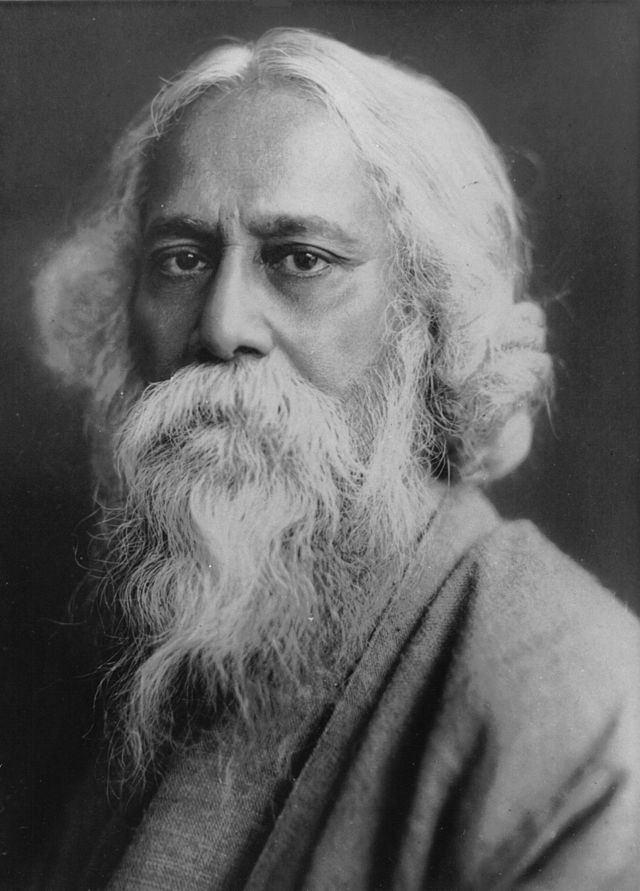Rabindranath Tagore - Biography
Introduction:
Rabindranath Tagore was born in Calcutta, British India on May 7, 1861. He was recognized throughout the world for his literary works - poetry, philosophies, stories, novels, and songs. In 1913, he turned into the first non-European to win the Nobel Prize in Literature. Tagore's life was filled with tragedy and loss, but also with great joy and accomplishment.

In this article, we will take a look at Tagore's life - his struggles and his successes.
Early life:
Rabindranath Tagore was birthed in Calcutta, India on May 7, 1861. He was the youngest child of Debendranath Tagore, a well-off Brahmin family. From a young age, Rabindranath showed a great interest in music and writing. He was taught at home by private mentors. In 1878, he traveled to England to study art, but he was not very successful and eventually returned to India.
From a young age, Rabindranath showed an interest in literature and music. He started writing poetry at the age of sixteen. His poetry was greatly influenced by the English poets, especially William Blake.
Marriage:
In 1883, Tagore was married to Marinalini Devi and has five children from this marriage. However, only three out of five could survive.
Education:
Rabindranath Tagore, a renowned poet, and philosopher did not enjoy his schooling. In fact, he was mostly found procrastinating (This is evident from the fact that he failed his undergraduate exam twice). Despite this, he was able to become one of the most well-known intellectuals of his time. Tagore's love for writing and art was evident from a young age.
He went to St. Xavier's Institution, and also later, he went to the University of London in Bridgton, England, to examine legislation as well as to become a barrister. However, Tagore became a poet and philosopher instead.
Career:
He started writing poetry at a young age and his first book was published when he was only sixteen-Bhanusimha was the first book that was published. Tagore's poetry is steeped in the cultural and spiritual traditions of India, and also reflects his wide reading in European literature. In 1912, he came to be the first non-European to be awarded the Nobel Reward in Literature. His most well-known work is the book of poems "Gitanjali".
He was a prolific writer and is best known for his poetry, yet he likewise composed books, essays, as well as dramatization. In 1911, Tagore created the Indian National Anthem, "Jana Gana Mana." After India ended up being a republic in 1950, the anthem was formally embraced as the nation's national anthem. Tagore also wrote the Bangladeshi National Anthem, "Amar Shonar Bangla.
Tagore's writing career spanned more than 50 years and his works were published in Bengali, English, and other languages. He wrote extensively throughout his life, authoring over 2,000 poems and numerous plays.
Foundation of Visva Bharati University
Rabindranath Tagore, a Bengali polymath who was a poet, musician, painter, essayist, and philosopher, founded Visva Bharati University in Santiniketan, West Bengal, India. The university was developed by the Tagore family in 1921and is one of the most prestigious universities in India. The college has an assorted understudy body and offers an assortment of courses in artistic expression, humanities, and sciences.
Visva Bharati University is open to each student and classes were held in open space beneath the trees on the university grounds. The buildings on campus are not imposing, but are instead designed to blend in with the natural surroundings. There is a sense of community and family at Visva Bharati University that is evident in the way students and faculty interact with one another.
This unique learning environment allows students to connect with nature and each other, fostering creativity and collaboration.
Establishing Shriniketan
In the year of 1921, Tagore along with Leonard Elmhurst founded Shriniketan ( adobe of welfare) in Sural village. This institution helped Tagore in supporting Gandhi’s Swaraj protest against the British empire. He also spread awareness against caste discrimination and untouchability and allowed Dalits to enter the Guruvayoor temple.
Literary Work and Awards:
He wrote about 1,500 songs, two thousand short stories, and eight novels. He won many awards. In 1913, he was awarded Noble Prize in literature. In 1915, he received knighthood honor from King George V, which he later returned after the Jallianwala Bagh massacre in 1919.
Death:
Rabindranath Tagore, the first non-European to win the Nobel Prize in Literature, was born in 1861 and died on the day August 7, 1941. In the last few years of his life, he was suffering from a chronic health disorder and eventually died at the age of 80. Tagore was a prolific writer and artist, and his work continues to be popular around the world.
Conclusion:
In conclusion, Rabindranath Tagore was a remarkable man, with many talents and accomplishments. He was a great writer, philosopher, and artist, and he also made important contributions to the field of education. He was compassionate and worked vigorously to help other people, and he was perceived for his accomplishments with various honors and respect. Rabindranath Tagore is an important figure in world history, and his work continues to inspire people around the world.